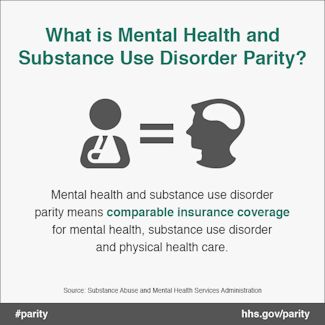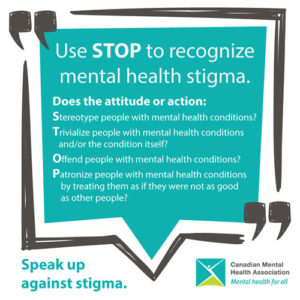2005; 186( 5 ): 436-441. Corrigan PW., Penn DL. Lessons from social psychology on discrediting psychiatric preconception. American Psychologist. 1999; 54( 9 ):765 -76. Penn DL., Martin J. The stigma of severe psychological illness: Some possible options for a recalcitrant problem. Psychiatric Quarterly. 1998; 69( 3 ): 235-47. Hinshaw SP., Cicchetti D. Preconception and mental illness: Conceptions of disease, public attitudes, individual disclosure, and social policy.
2000; 12( 4 ):555 -98. Rosen E., Gregory I. The historic background of unusual psychology. Ed: W.B. Saunders Business. Philadelphia, 1965. Sarason IG., Sarason BR. Abnormal Psychology. The historic background of unusual psychology, sixth ed. Ed: Prentice Hall. Englewood Cliffs, NJ, 1989. Strickland BR. History and intro to clinical psychology. In S. Cullari Structures of medical psychology Ed: MA: Allyn & Bacon.
Harty KP. From stigma to technique. Nursing Requirement. 1999; 13( 38 ): 36-40. Furnham A., Chan E. Lay theories of schizophrenia. A cross-cultural comparison of British and Hong Kong Chinese mindsets, attributions and beliefs. Soc Psychiatry Psychiatr Epidemiol. 2004; 39( 7 ):543 -52. Halter MJ. The stigma of seeking care and depression. Arch Psychiatr Nurs. 2004; 18( 5 ): 178-84.
The requirement for psychological health promotion. Aust N Z J Psychiatry. 2001; 35( 6 ):709 -15. Mueller B., Nordt C., Lauber C., Rueesch P., Meyer PC., & Roessler W. Social assistance modifies perceived stigmatization in the first years of psychological health problem: A longitudinal method. Soc Sci Med. 2006; 62( 1 ):39? 49. Johnstone MJ. Preconception, social justice and the rights of the psychologically ill: Challenging the status quo.
Excitement About How Bad Mental Health Can Affect You Newssource
2001; 10( 4 ): 200-209. Lauber C., Carlos N., Wulf R. Lay beliefs about treatments for people with mental disorder and their ramifications for anti stigma methods. Can J Psychiatry. 2005; 50( 12 ):745 -52. Link BG., Struening EL., Rahav M., Phelan JC., Nuttbrock L. On preconception and its repercussions: Evidence from a longitudinal study of men with double medical diagnoses of mental disorder and compound abuse.
1997; 38( 2 ):177 -90. Perlick DA., Rosenheck RA., Clarkin JF., Sirey JA., Salahi J., Struening EL. & Link BG. Preconception as Addiction Treatment Facility a barrier to healing: Unfavorable effects of perceived stigma on social adjustment of persons identified with bipolar affective disorder. Psychiatr Serv. 2001; 52( 12 ):1627 -32. Take Legal Action Against D., Sue DW., Sue S. Comprehending abnormal behavior.
Boston, 1994. Wong DF. Revealing sociocultural elements influencing the pathway to care of Chinese caretakers with family members suffering from early psychosis in Hong Kong. Cult Med Psychiatry. 2007; 31( 1 ):51 -71. Hintikka J., Koskela T., Kontula O., Koskela K., Viinamaki H. Men, females and buddies - exist distinctions in relation to mental wellness? Qual Life Res.
Ng CH. The stigma of mental disorder in Asian cultures. Aust N Z J Psychiatry. 1996; 31( 3 ): 382-90. Komiya N., Excellent GE., Sherrod NB. Psychological openness as a predictor of university student's attitudes towards seeking psychological aid. Journal of Counseling Psychology. 2000; 47( 3 ):138 -43. Esters IG., Cooker PG., Ittenbach RF. Results of a system of direction in psychological health on rural teenagers' conceptions of mental disorder and attitudes about looking for help.
Excitement About How Mental Health Can Affect Physical Health
1998; 33( 130 ):469 -76. Weiss MF. Children's mindsets towards the psychologically ill: An eight-year longitudinal follow-up. Psychol Rep. 1994; 74 (1 ):51 -56. Gaw A/C. Psychiatric care of Chinese Americans. In A. C. Gaw (Ed.), Culture, Ethnic Culture, and Mental Health. American Psychiatric Association. Washington DC, 1993. Farina A., Fischer E., Boudreau L., Belt W. Mode of target discussion in measuring the stigma of mental illness.
1996; 26 (9 ): 2147-56. Nieradzik K., Cochrane R. Public attitudes towards psychological illness-the impacts of behaviour, functions, and psychiatric labels. Int J Soc Psychiatry. 1985; 31( 1 ): 23-33. Brown P. Identifying and framing. The Social Construction of Diagnosis and illness. J Health Soc Behav. 1995; Spec No: 34-52. Schonert - Reichl KA., Muller JR.
Journal of http://gregoryrlxs088.timeforchangecounselling.com/getting-my-how-mental-health-affects-gun-violence-to-work Youth and Teenage years. 1996; 25( 6 ):705 -29. Simmons J. Kid's mental health tackled. Therapy Today. 2000; 15( 1 ): 1-26. Leaf PJ., Bruce ML., Tischler GL., Holzer CF. The relationship in between market elements and attitudes toward mental health services. J Neighborhood Psychol. 1987; 15( 2 ): 275-84. Corrigan PW - how does stresss affect our mental health., Green A., Lundin R. Kubiak MA., Penn DL.
Psychiatric Solutions. 2001; 52( 7 ): 953-58. Stuart H., & Arboleda-Florez J. Neighborhood attitudes towards people with schizophrenia. Can J Psychiatry. 2001; 46( 3 ): 245-52.

How Does Adhd Affect The Mental Process Fundamentals Explained
Stigma happens when society labels somebody as tainted or less preferable. Stigma includes 3 aspects; an absence of understanding (ignorance), negative mindsets (prejudice) and individuals behaving in ways that drawback the stigmatised individual (discrimination) ( 1 ). Several health conditions Mental Health Doctor are connected with preconception consisting of some cancers, HIV, AIDS and skin conditions such as psoriasis.
This article goes over psychological health stigma, its consequences and what can be done to reduce it. 2 main kinds of stigma take place with psychological health issue, social preconception and self-stigma. Social preconception, likewise called public preconception, describes unfavorable stereotypes of those with a mental health problem. These stereotypes come to specify the person, mark them out as various and prevent them being seen as a person.
For example an individual with a mental illness might discover that others, including buddies and associates, prevent them. They might likewise discover it harder to gain real estate, obtain work and access health care and may find that their account is less likely to be thought by the authorities if they report a criminal offense. how do mental disorders affect rational thought.
The repercussions of discrimination, for instance unemployment and social seclusion, can stigmatise a person further. Self-stigma happens when a person internalises unfavorable stereotypes. This can trigger low self-confidence, shame and despondence. Both types of stigma can lead a person to prevent looking for help for their mental health issue due to shame or fear of being shunned or rejected.
Why May Dehydration Affect One's Cognitive Ability/ability To Process Mental Tasks? - Truths

A hold-up in getting treatment can worsen the outlook of some conditions as can the stress and anxiety triggered by experiencing stigma. Relative can end up being stigmatised by a relative having a psychological health issue, so called courtesy stigma. It has been argued that certain diagnostic labels cause preconception. Although it holds true that specific medical diagnoses, for example schizophrenia, carry more unfavorable connotations than other medical diagnoses, for instance depression, preconception can not be attributed to diagnosis alone.
The level of understanding among the general public regarding mental health issue is bad and unfavorable beliefs and attitudes are widespread ( 3 ). Both are crucial elements of preconception. Among the most common and destructive misperceptions is that individuals with schizophrenia are violent and a danger to others (how does spenning time outdoors affect mental health). This view has been perpetuated by misinforming media reports.
An individual with schizophrenia is much more most likely to be the victim of violence than to be violent to another person ( 5 ). They are also more most likely to be the victim of violence than an individual in the general population ( 6 ). If an individual with schizophrenia ends up being aggressive this is frequently associated to making use of extreme alcohol or street drugs which resembles the circumstance seen with individuals who do not struggle with schizophrenia however end up being aggressive.
Individuals with these disorders, and likewise anxiety and anxiety, are frequently considered as needing to 'pull themselves together'. Such views would hardly ever be connected with cancer or cardiovascular disease. In reality the cause of the majority of mental health issue, like a lot of physical health issues, is complex and numerous threat aspects contribute.